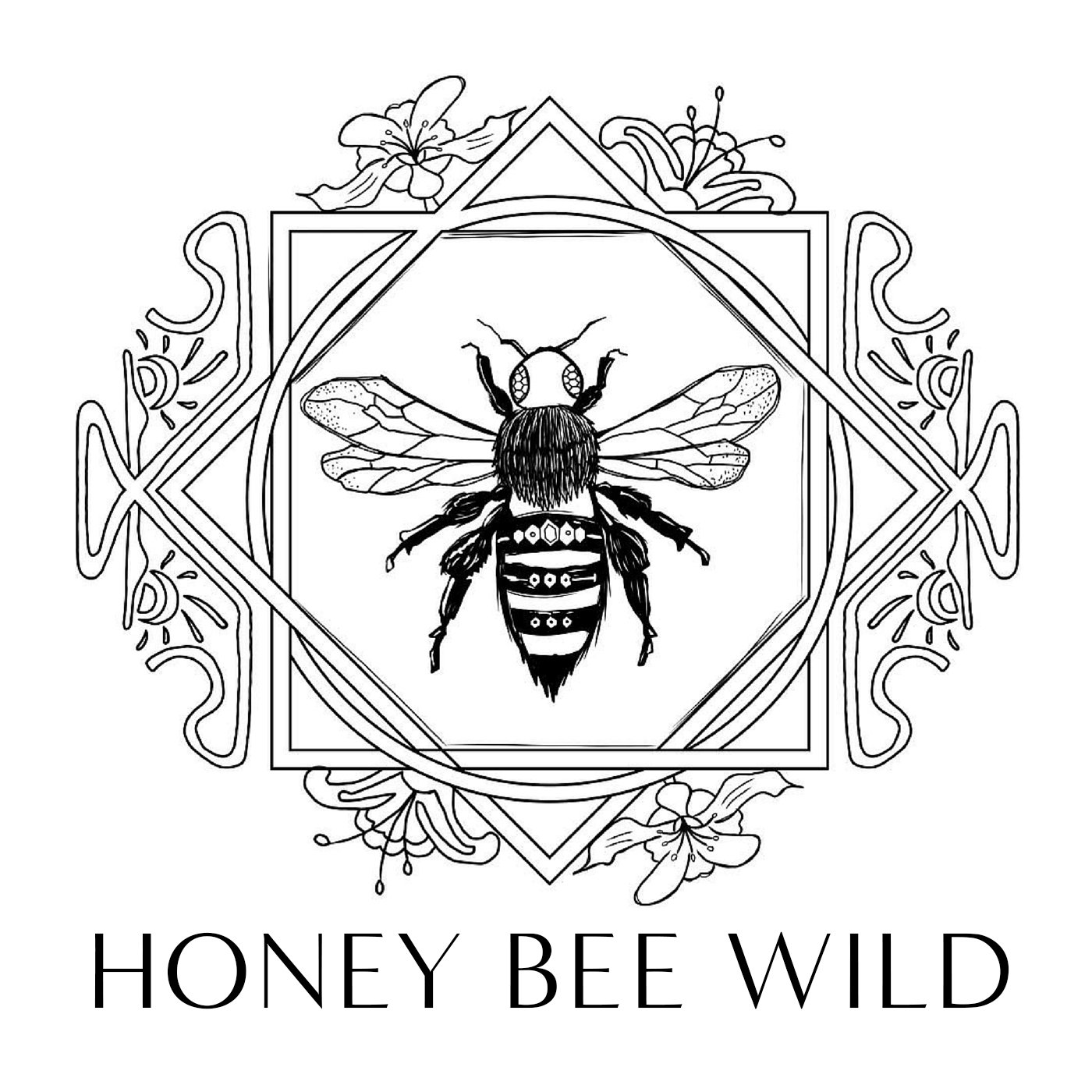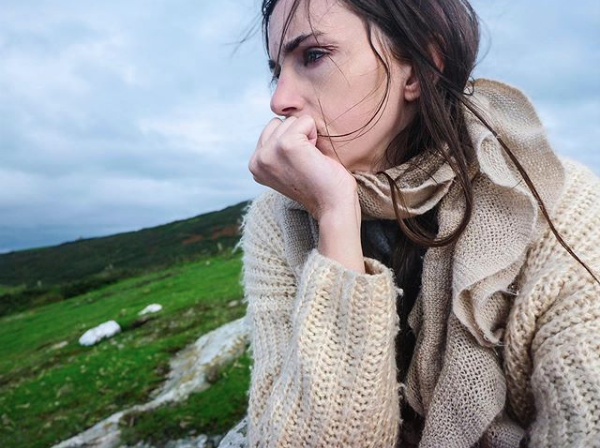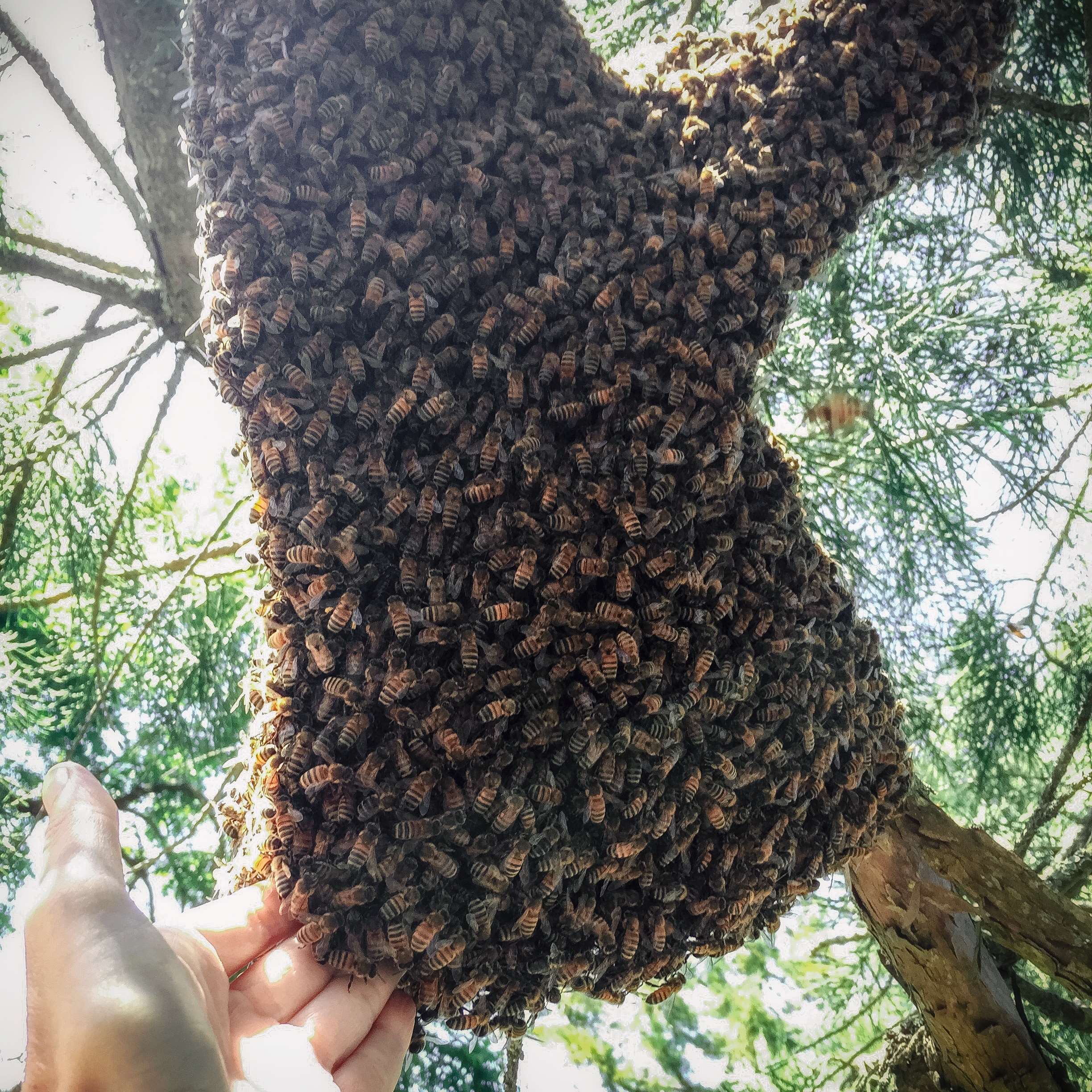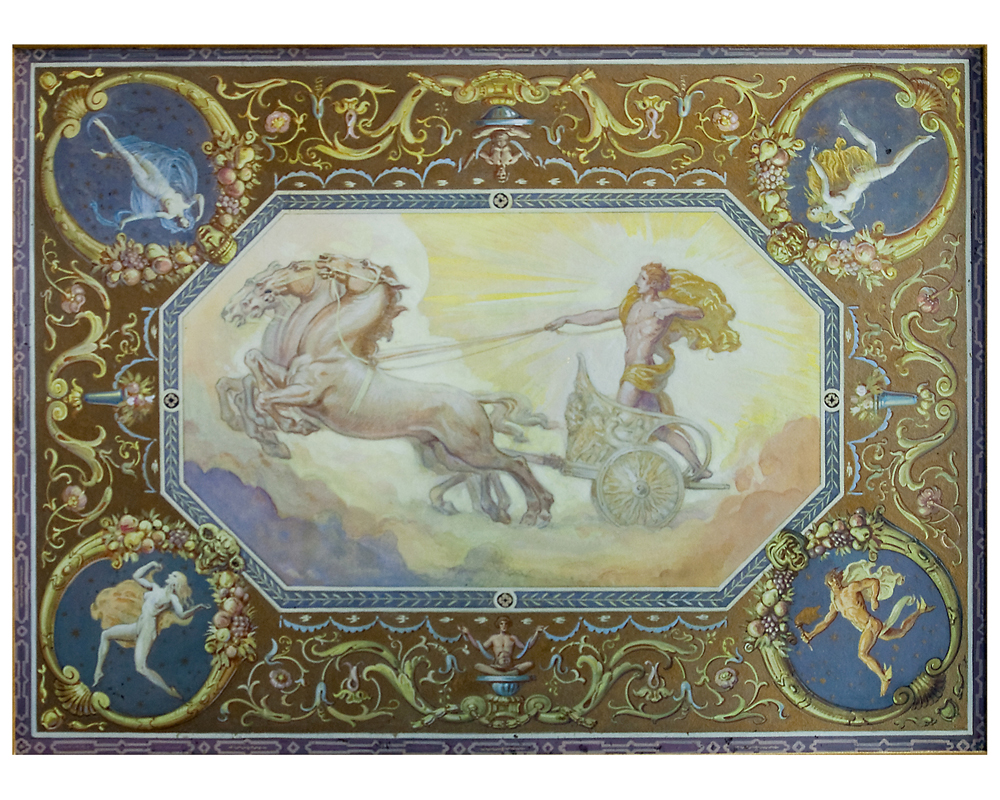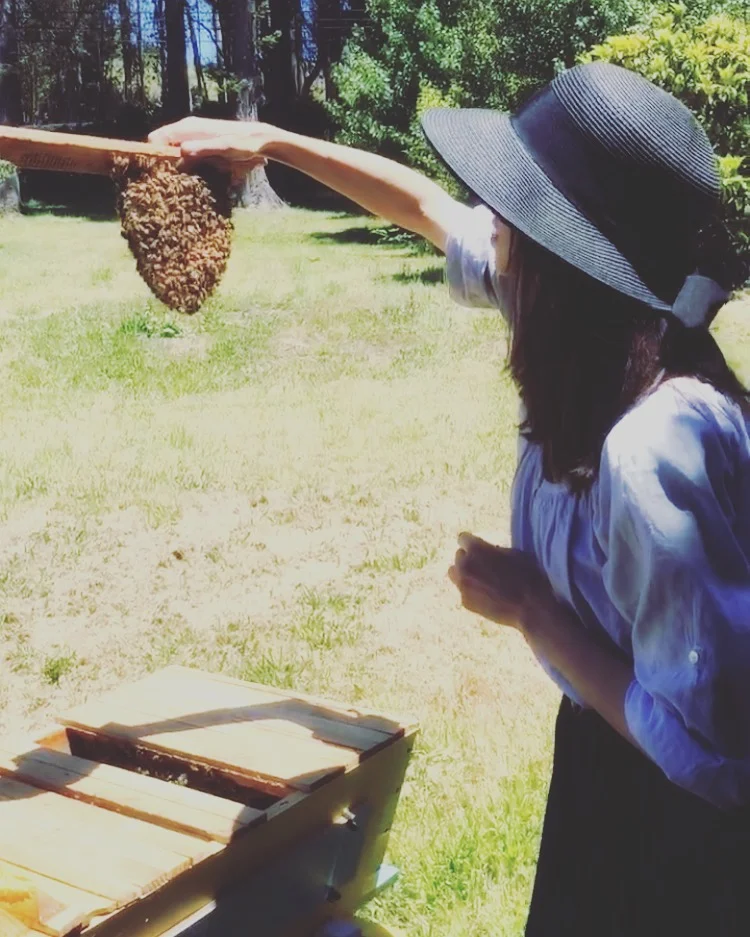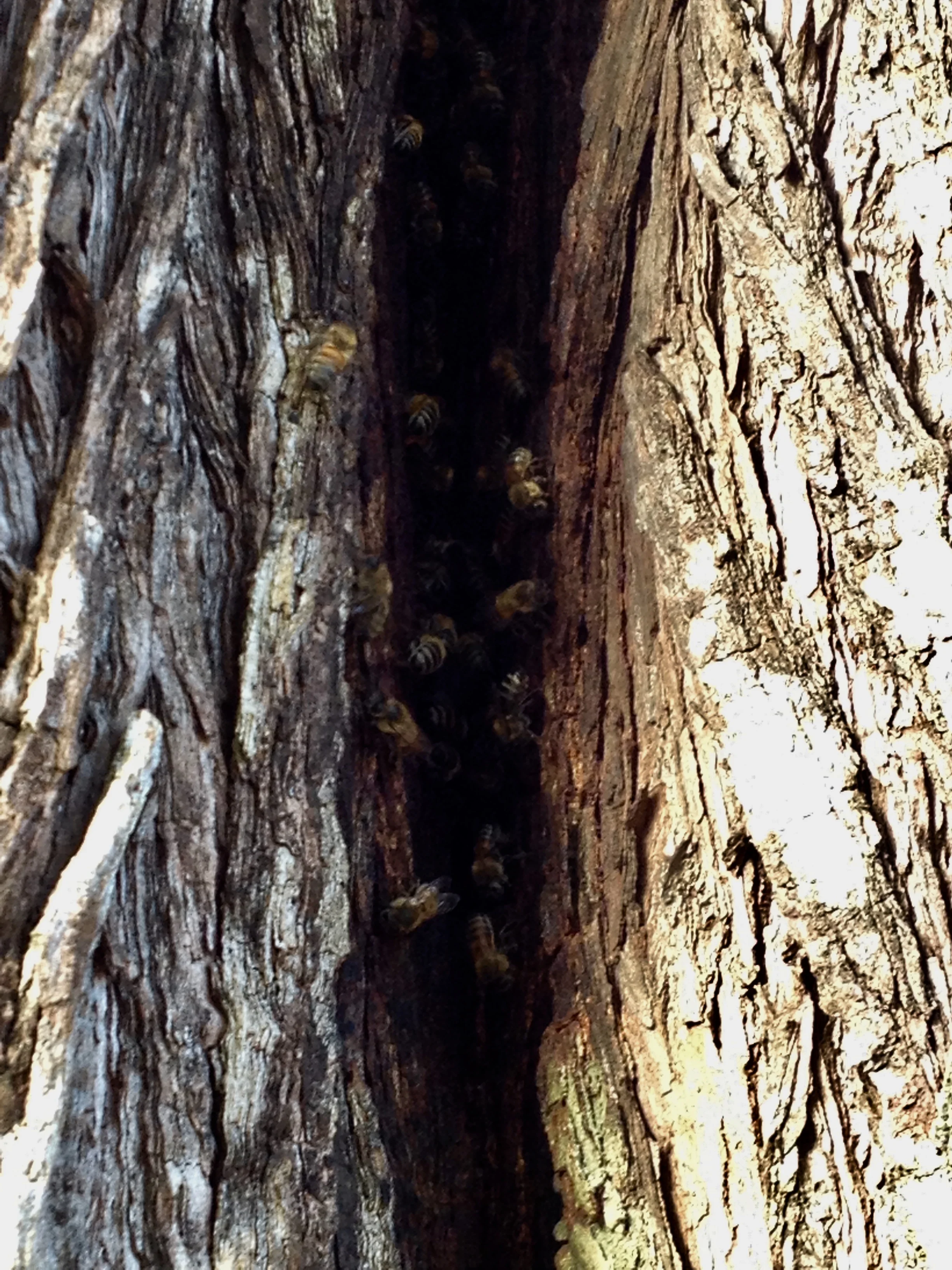When the Death Goddess Comes
We’ve given her many names: Callieach, Persephone, Nepthys, Kali. But her original name was Earth. Mother. Crone. Womb and Tomb. There is no death goddess who is not also tied to, or herself a goddess of rebirth. They are not separate, because life is not, and never can be separate from death. This is why the Kelts built passage tombs or long barrows. We are born of the Mother and return to the Mother, her dark and earthly embrace.
We’ve given her many names: Callieach, Persephone, Nepthys, Kali. But her original name was Earth. Mother. Crone. Womb and Tomb. There is no death goddess who is not also tied to, or herself a goddess of rebirth. They are not separate, because life is not, and never can be separate from death. This is why the Kelts built passage tombs or long barrows. We are born of the Mother and return to the Mother, her dark and earthly embrace.
In the modern era we often associate bees with symbols of abundance, industriousness, and springtime. However, bees have also long been associated with death in equal measure. Bees and beehive are common symbols on tombstones, even within the Christian Era, but their association with death stretches deep into antiquity, where bees were seen by many cultures, including the Greeks and the Kelts, as messengers who could travel between the worlds, including between this life and the afterlife. This is part of the origins of Telling the Bees, when bee hives were visited after a death in the family to tell the bees of the loss.
Bees seem to be born of the Earth Mother herself, issuing forth from dark caves, tree hollows, and earthy hollows to bring life, honey, and springtime to the land. Similarly they return, as the serpent does, to their interior slumber within the Earth each autumn. Is it any wonder that in many parts of the ancient world bees were thought to be born from the carcass of a bull? They are midwives to death and bringers of life.
To be a beekeeper in the modern era, it is our sacred duty to befriend death. The bees require it of us. The midwives of death are asking us to midwife them. How? Through presence, through grief, through ceremony, through surrender. Bees die in the autumn. If you become a beekeeper you are wedding yourself to an intimate relationship with life and death. With abundance and the wasteland.
To be present to, and witness death is to radically honor the feminine principle. It’s feminist as fuck.
There’s a reason the original goddess was the Earth herself, and the Earth was seen as the all-creating Mother. Life and death were less of a duality, and more of an eternal cycle. A cycle witnessed monthly in rhythm of women’s bodies: to blossom and to shed.
To be a beekeeper you have to be able to sit with death. Your bees will die. Not always, and hopefully less and less. But they will die. From starvation. From varroa. From beekeeping practices you’ve been taught. From chemicals. From pesticides. From treating. From not treating. From smoke. From Cold. We steward them, and do everything in our power to keep them alive, but without addressing massive systemic issues related to climate change, biodiversity loss, and repression of the feminine, the bees are going to continue to die prematurely and often. Getting a hive to survive past a year or two is very challenging for new beekeepers.
When the death goddess visits your hive, what can you do? Honor her. Be fully present and alive to the death you witness. Clean your hive. Honor what’s left behind. Process the wax and the honey. Leave offerings of gratitude to the land. Bring your tears and your prayers. Feel that death move through your body, as a body made of the earth, who knows how to take and transform that loss. Celebrate the beauty they brought to your life and your land.
Meet her at the crossroads.
The Wounded Masculine
just finished teaching a dream retreat based within the Path of Pollen/Lyceum methodologies. As a result, my dreaming has been turned up a notch.
I just finished teaching a dream retreat based within the Path of Pollen/Lyceum methodologies. As a result, my dreaming has been turned up a notch.
I have been dreaming of love and pain. In my dreams, I am both a man and a woman and we are in love. We are each other. In all dreams, as the woman, I am trying to save the man. And as the man, I am trying to protect the woman. It is always the man who is riddled with bullets or wounds. Who is hunted by the underworld god. Who is bleeding out. Who is fevered and dying. And it is always the woman who is trying to save him. In one, as I wipe away the blood from many bullet wounds I realise that underneath the blood he is covered in a thin layer of propolis. When I see this, I know that he is strong enough to survive. Propolis is, after all, the immune system of the honeybee, made in reverence with the budding life sap of the trees and the inner alchemy bee.
I know that it is not my job to save the wounded masculine, but this week I have been feeling him so strong. In me. In the world. In men. I have been feeling all the places the divine masculine sacrificed himself. All the places the divine masculine has been exiled to the edges of the sea and the desert. Exiled from our tidy, hurried lives. All the places he took the bullet so that we could survive. I know that it is Patriarchy, among other systems of dominance, that has wounded women. Laid claim to our sovereignty. Violated our womb and our bodies. Silenced us. Killed us. The same belief structure has created systems that harm the Earth and all her living creatures. But I also know the this system has cut wounds so deep in men and the masculine that he/we are now fevered with the impact. Burning up. Breaking down.
Today I am simply feeling compassion for all the places in ourselves that have been suppressed, oppressed and violated by the current system of dominance we live within. I want to cry tears into the bullet wounds I witnessed in my dreams and watch them wash the injuries clean.
Call it resurrection of the self. Call it saving each other. Call it the deep work. Call it the shadow. Call it the beloved. Call it what you will, but regardless of where you fall in the spectrum of expression that we call the masculine and the feminine, we are in the laboured work of healing. We need all of ourselves. We need the feminine flow and masculine sturdiness. We need the women’s holding and men’s tears. We need the moonblood and the salt. We are calling our exiled, wild soul back to ourselves.
Oh, my beloved, come close: I am willing to look into that dark chasm of wounding and coat it with my tears, my love, my lion’s roar, my propolis, and my honey.
Mistress of the Wild
If you reach your hand back into the mythscapes of history, you will find, over and over, the story of the sacred other. The lover. The Twin. The Sister. The Brother. The Sacred Adversary. The Mirror. The Queen and her King.
If you reach your hand back into the mythscapes of history, you will find, over and over, the story of the sacred other. The lover. The Twin. The Sister. The Brother. The Sacred Adversary. The Mirror. The Queen and her King. You will find a story of a divide. A separation. A rift. A searching. A reunion. Isis and Osiris. Mary Magdalene and Jesus. Ariadne and Dionysus. Ixchel And Itzamná. One can not exists without the balancing force of the other.
It is said that Apollo, the Sun god, was the father of beekeeping, while his twin sister, Artemis, the Moon goddess, was the protector of the wild bees. The Master beekeeper was tempered by the Mistress of the wild ones. One governed civilization, while the other protected the wilderness. We over-civilized, wild souls sit at a turning point. We can not reject civilization, but we can also no longer allow civilization to reject the wilderness. We are being stalked by the wild. It is hunting us through our dreams, our water, our longings, our delusions. After all, Artemis is the swift and decisive huntress, is she not?
By César Álvarez Dumont
By Louis Grell
As a beekeeper, I am always asking how to balance the beauty of cultivated beekeeping with the rewilding necessary for species survival. In the modern era, the Father of Beekeeping has taken center stage, while the Mistress of the Wild bees has been systematically erased and forgotten. Her fierce wisdom pushed aside. Her moon-tipped arrow ignored. Her animal-speak hushed. The living myth continues on and we find ourselves netted by all we have forgotten. We can not survive off the wisdom of Apollo’s Sunlight alone. The bees know this, and so they have cried out with the only language that can truly grasp our adolescent attention span: Death.
Every myth is a journey. Every epic a story of light and dark, balance and ambiguity. Separation and reunion. Make room in your heart for the Huntress. For she who speaks the language of the wild. That heart chamber is not created by hatred of the God who slew the serpent, but rather, by acknowledging his role in the sacred arc of story, and stepping into your place in the continued telling. Apollo is not the enemy. He is not complete without his twin. The moon has no light without the Sun. There is a place for the beekeeper and the tender of the wild bees. Make room for your own paradox. Traverse betwixt and between. The bees are showing you how, so get your ear low to the ground and become the myth-weaver.
